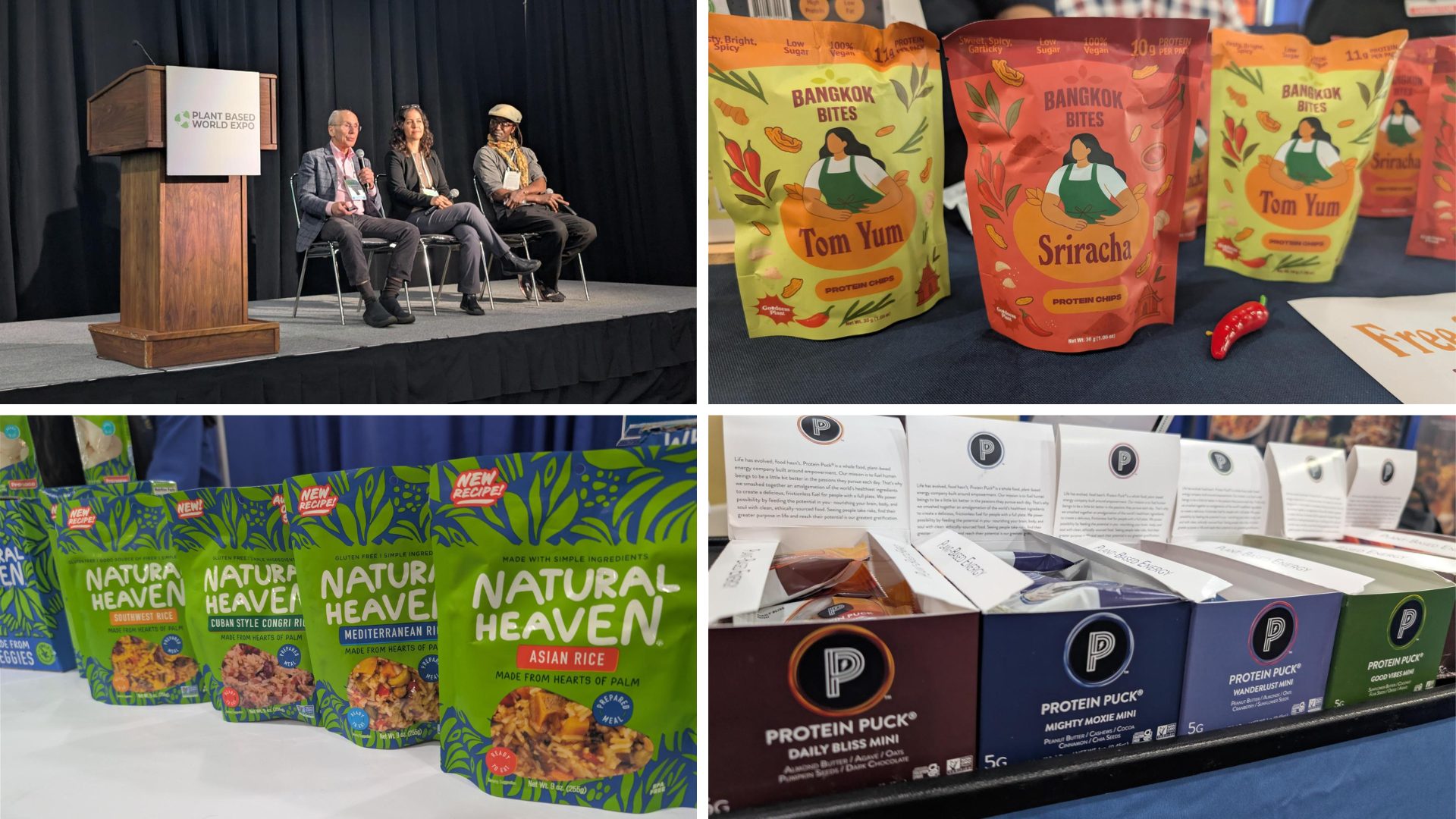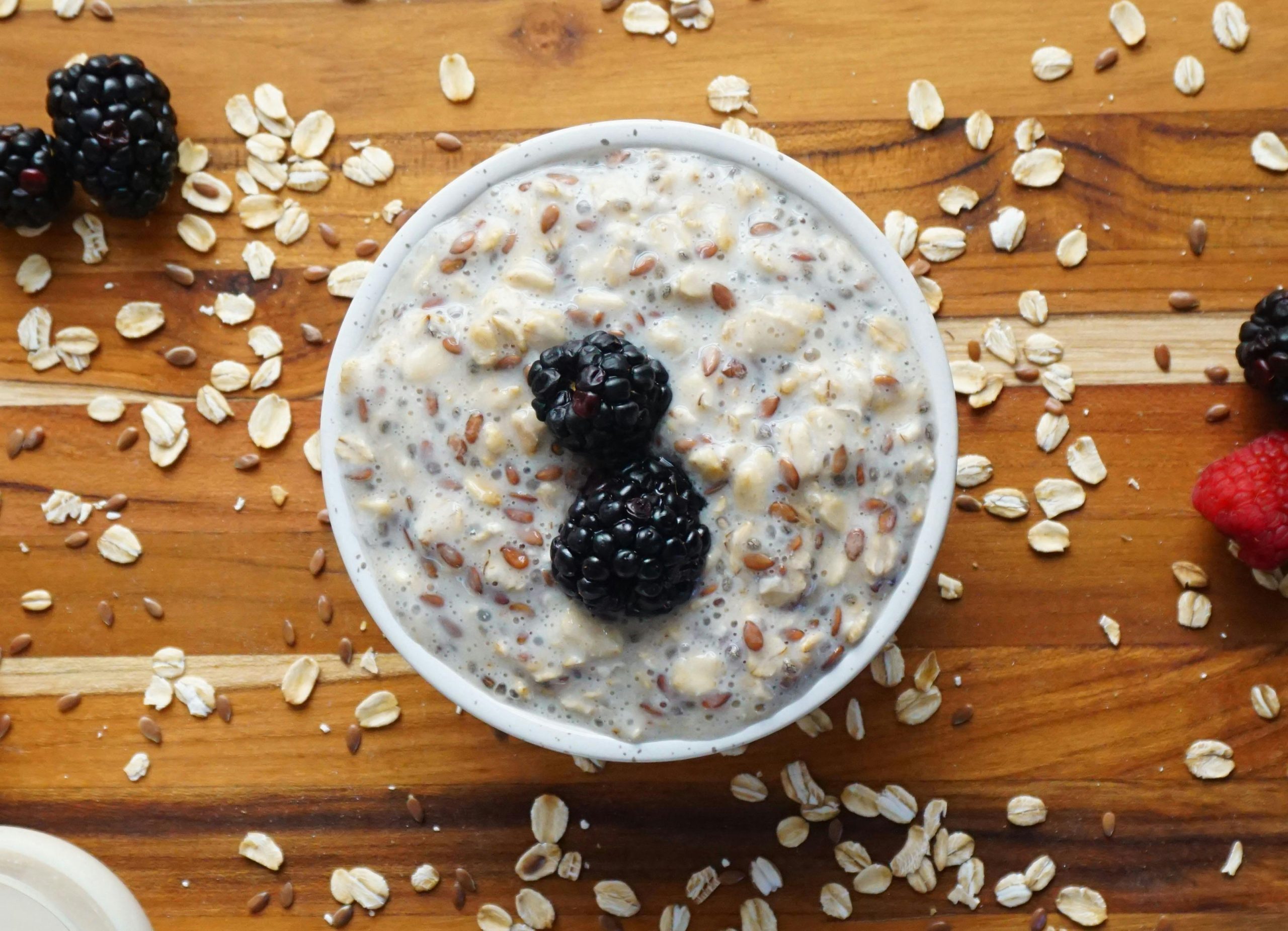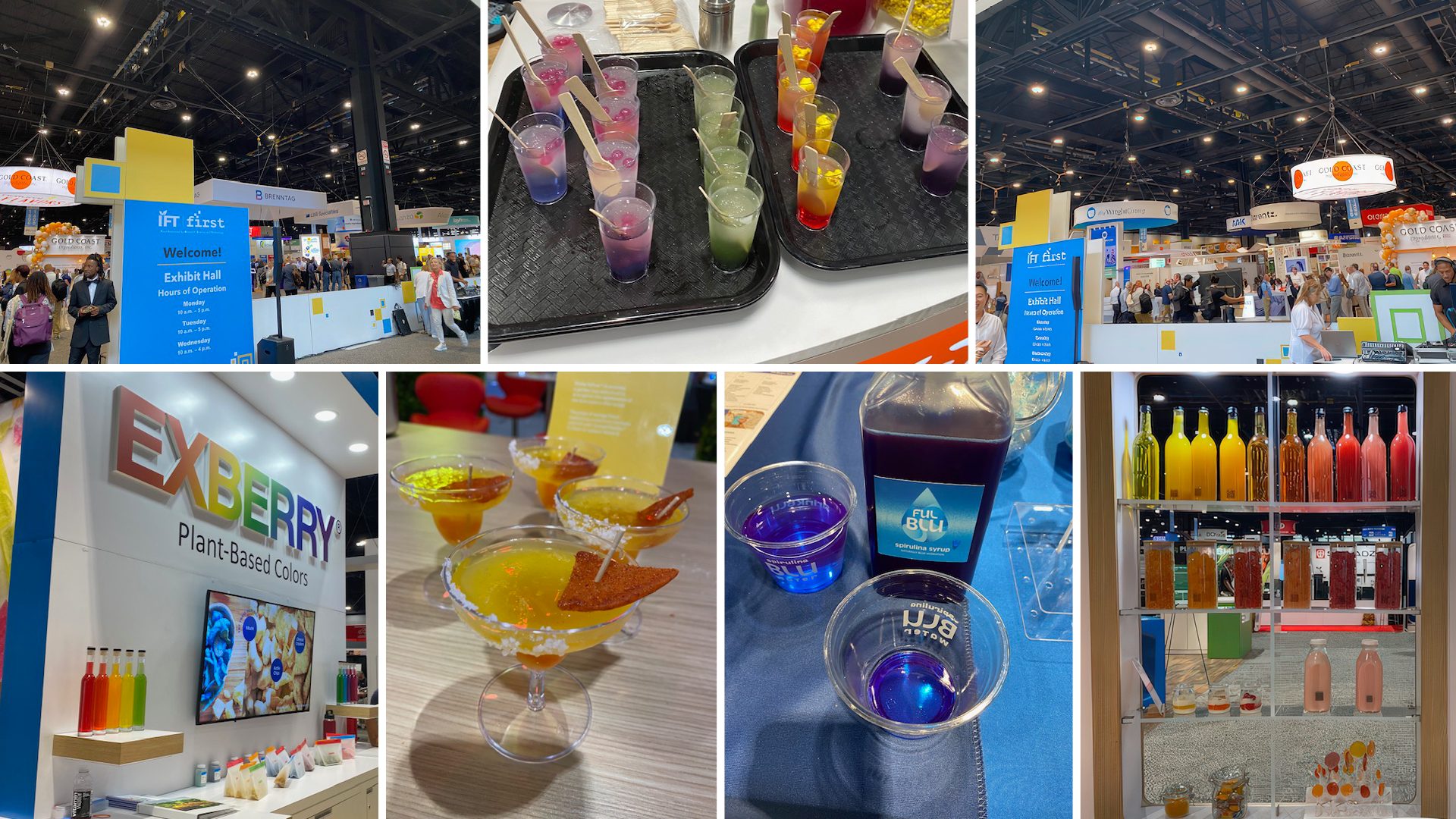Plant-based was the primary theme among ingredient companies exhibiting at the IFT FIRST annual meeting and expo held earlier this month in Chicago.
And with good reason.
Retail sales of plant-based foods grew by 6.2% in 2021 to reach $7.4 billion in the U.S. according to SPINS data analyzed by the Plant Based Foods Association (PBFA) and The Good Food Institute. Plant-based food retail sales grew three times faster than total food (1.9% growth) retail sales in 2021 as U.S. consumers sought out foods viewed as being better for personal health, the environment, and animal welfare. Growth is being driven by flexitarians who want to increase their consumption of plant-based foods without sacrificing taste. To appeal to these occasional vegetarians, exhibitors at IFT FIRST offered a range of ingredients and flavors designed to help food developers create great tasting plant-based analogues.
Dairy
“Taste how simply delicious plant-based dairy flavors can be”, proclaimed the sign at The Edlong Corporation’s booth. Edlong helps food product developers create plant-based products with dairy flavor, richness, and mouthfeel through its flavors and masking solutions to reduce the off-notes found in plant proteins.
Avebe showcased its Perfectasol clean label plant-based dairy solution in a wide range of plant-based cheeses – feta, grated cheese, and cream cheese with herbs. The Perfectasol texturizers are made with potato protein and potato starch to replace modified starches and label unfriendly hydrocolloids while providing creaminess and stretchability to plant-based products.
Alt-Meats
MycoTechnology, Inc. uses a proprietary fermentation process that uses the power of mushroom mycelia (the root systems of mushrooms) to create a complete, plant-based protein that delivers on nutrition and functionality. FermentIQ Protein is produced by taking pea protein or a pea and rice protein blend and fermenting it with shitake mushroom mycelium “to improve flavor, aroma, digestibility, anti-nutrient content, and application functionality”. At the show, riblet sliders, sopes al pastor, and sausage sticks were served. The company received a $85 million Series E funding in March led by the Oman Investment Authority, raising a total to date of more than $200 million. FermentIQ Protein can also be used to produce dairy alternatives.
Jim Alderink, chief product officer at MycoTechnology, told The Food Institute, “At MycoTechnology, we formulate our product with pea and rice to be a complete plant-based protein. We have the only non-soy, plant-based protein to offer this level of nutrition. Our unique mycelial fermentation transforms this blend into a more functional and nutritional ingredient. Functional benefits include the reduction in potent plant based off notes and aromas, as well as improved physical properties. This helps plant-based consumer products provide similar performance characteristics to that of meat, in flavor, texture and overall juiciness.” Alderink added, “Nutritionally, we continue to garner evidence of our fermented protein’s superiority to other plant-based protein options. Third party studies have shown our fermented protein to have enhanced digestibility, as well as a substantial reduction in anti-nutrient content – making our proteins easier to digest and allowing for more rapid nutrient absorption. And we are not finished uncovering benefits! Our ongoing research is committed to discovering new benefits in our fermented protein ingredients and delivering these to our customers and consumers.”
Planetarians also uses the power of fermentation to improve taste and protein quality but in a different manner. The company creates alternative meat blocks by combining the by-products of fermentation (brewers spent yeast) with plant-based protein and then using a wet extrusion process. Planetarians claims that its proprietary IP allows it to produce plant-based meat priced on par with beef by upcycling fermentation by-products with low-cost sources of protein to create whole cuts of meat. The labeling for the product is Planetarians meat block (yeast, soybean) on the company’s website. Planetarians sees the benefits of fermentation as clearing beany aftertaste, adding meaty flavor and color, providing extra protein, and increasing protein quality and functionality.
Alchemeat showcased what it calls “the world’s first plant-based whole cut meat that tastes exactly like premium beef”. The 100% plant-based product has zero cholesterol and contains these base ingredients: water, soy protein isolate, soy flour, and wheat gluten. The company states that Alchemeat costs the same or less than real premium beef and can be served in minutes by foodservice operators. Three varieties are available: Flank Steak, Mongolian Steak, and Steak Fajitas.
Standing out in a sea of alt-beef burgers and alt-chicken nuggets, Glanbia Nutritionals offered sliced deli “meats” with its Simple Promise Plant-based Protein Solutions line that are made with the company’s Simpleat, a pea protein-based patent-pending, turn-key ingredient system. The company’s Plant-based Turkey & Ham Alternatives, Plant-based olive loaf, and Plant-based Crumble are ultra-clean label, soy free, and protein rich with ingredients of water, pea protein, canola oil, vinegar, salt, natural flavors & colors.
Seafood
The need for seafood alternatives has become imperative according to Kishan Vasani, Spoonshot’s co-founder & CEO, who presented on “Food Brain Predicts…Trends 2023 & Beyond” at IFT FIRST’s Business First Stage. He expects to see the next big growth spurt in terms of innovation in alternative fish and seafood because there is greater urgency for fish alternatives than meat alternatives. According to Spoonshot’s data, interest in pescetarian diets – not eating meat but eating fish and seafood – is on the rise, growing by 117% since 2015 and by 9% in the 12 months to April 2022. But global fish populations are dwindling due to overfishing, rising ocean temperatures, and pollution. The U.S. retail plant-based seafood market is currently tiny at only $14 million according to data from PBFA. Plant-based seafood faces barriers including consumers’ association of fish with health versus meat along with complaints about flavor and texture. Vasani pointed to the world’s first unbreaded jackfruit and seaweed fish fillet from The Cornish Seaweed Company and Jack & Bry as making for a strong plant-based fish, with the seaweed and jackfruit combination having a very high novelty and a high consumer acceptance score.
Although the author saw only one exhibitor – Ingredion – offering a plant-based seafood analogue as Fishless Fillet, the 2023 edition of IFT FIRST could see more alt-seafood options as consumer awareness of overfishing grows.
Virginia Lee is a food, drinks & beauty trends explorer and market researcher. She has advised companies on innovation and market entry opportunities in consumer packaged goods at Euromonitor International, Brightfield Group, and Innova Market Insights. Connect with Virginia on Twitter and Instagram at @VirginiaALee.











